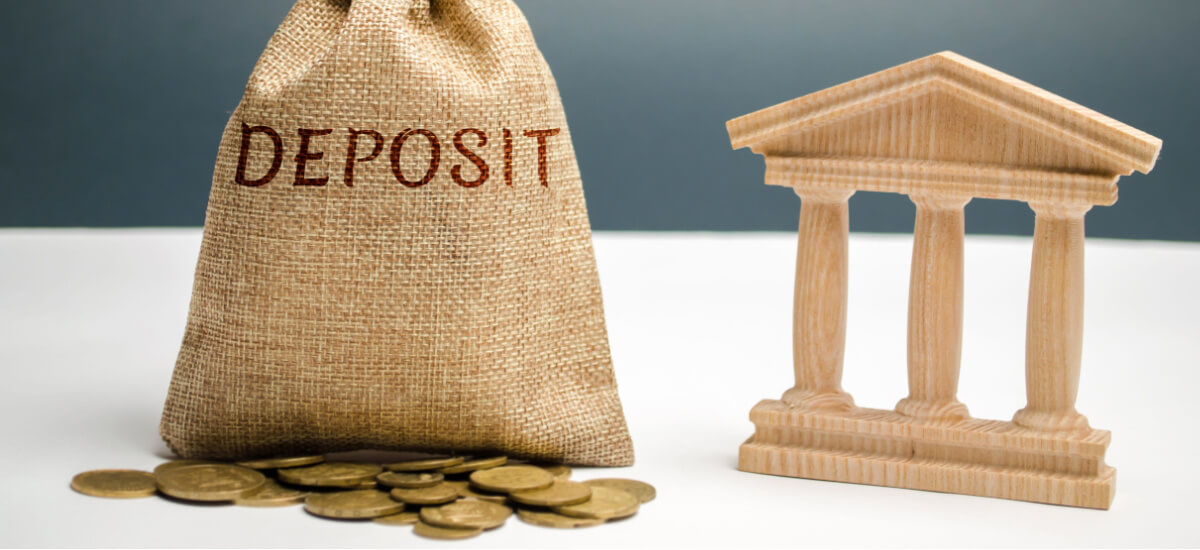Apple Pay vs Samsung Pay: How do they compare?
Check out our full comparison of Apple Pay vs Samsung Pay in the UK, to help you choose the right digital wallet for you.

Prefer to bank in person, or have a cash deposit to pay into your bank account? If you can’t make it to a bank branch, your local Post Office could be the place to go.
In this handy guide, we’ll look at whether you can put money in your bank account through the Post Office, and how to go about it.
| Table of contents |
|---|
Yes, almost everyone with a UK bank account can deposit money into it at a Post Office branch. This makes it more convenient if you do need to pay in a cash deposit, without having to find your nearest bank branch - which could be quite a distance away.
We’ll show you how to put money into your account at the Post Office in just a moment. The process varies between banks, as some let you deposit cash while others only permit deposits using a debit card.
It all depends on the bank and the account, but the Post Office does offer services for everyday business banking at its branches. This could be useful if your business handles cash or cheques, and you need to pay in at the end of the day - but can’t make it to the bank.
You can check if your bank is supported here.
Want to make a payment into your bank account at the Post Office? The first thing you need to do is head to the Post Office website to check whether it offers pay-in services for your bank.
It’s really easy to do - simply select your bank from the drop-down menu and check whether cash deposits are supported. You can also find your nearest Post Office branch.
Then, all you need to do is pop in with your cash or card, and pay into your bank account over the counter.
| 📚 Read more: Post Office’s partnership with Western Union: how it works? |
|---|

The Post Office website has details of what you’ll need to bring with you in order to make a deposit, which varies on who you bank with. You can also contact your bank for details.
But here’s a quick look at what you might need:
No, it’s completely free to use the Post Office to deposit money into your bank account.²
However, there is one very important thing to check. While the Post Office won’t charge you a fee, some banks do have fees for making cash deposits.² To avoid this, you might want to check directly with your bank beforehand.
If you pay in your deposit using a debit card, it should show in your bank account the same day. Cash deposits tend to take longer, so you can expect to see it in your account the next working day.² It can vary from bank to bank though.
The Post Office only lets you make deposits into UK bank accounts. So if you need to make a payment to an international account - your own or someone else’s - you’ll need an alternative solution.
The money services provider Wise is just what you need.
Sign up for a Wise account online and you can send money worldwide to 160+ countries in just a few clicks. You’ll only pay low, transparent fees* and always get the mid-market exchange rate.
Sources used for this article:
Sources checked on 30-Jan-2024.
*Please see terms of use and product availability for your region or visit Wise fees and pricing for the most up to date pricing and fee information.
This publication is provided for general information purposes and does not constitute legal, tax or other professional advice from Wise Payments Limited or its subsidiaries and its affiliates, and it is not intended as a substitute for obtaining advice from a financial advisor or any other professional.
We make no representations, warranties or guarantees, whether expressed or implied, that the content in the publication is accurate, complete or up to date.

Check out our full comparison of Apple Pay vs Samsung Pay in the UK, to help you choose the right digital wallet for you.

Find out what exchange rate Currensea uses for card payments, ATM withdrawals and money transfers here in our handy guide.

Compare Currensea vs. Wise in our comprehensive UK guide, covering fees, features, travel cards, exchange rates and more.

Read our comprehensive Currensea review, focusing on fees, exchange rates and transfer times for international money transfers.

Read our FairFX currency card review, covering exchange rates, limits, fees and more.

Find out how to cancel your Revolut card as a UK customer here in our handy guide, including how to close your account.